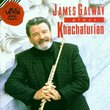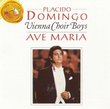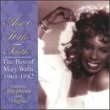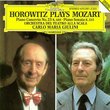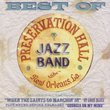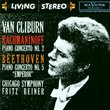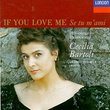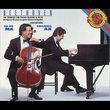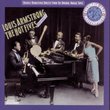| All Artists: Sergey Rachmaninov, Pyotr Il'yich Tchaikovsky, Fritz Reiner, Kiril Kondrashin, Chicago Symphony Orchestra, RCA Victor Orchestra, RCA Victor Symphony Orchestra, Van Cliburn Title: Tchaikovsky: Concerto No. 1/Rachmaninoff: Concerto No. 2 Members Wishing: 0 Total Copies: 2 Label: RCA Release Date: 1/12/1993 Genre: Classical Styles: Forms & Genres, Concertos, Instruments, Keyboard, Symphonies Number of Discs: 1 SwapaCD Credits: 1 UPC: 078635591224 |
Search - Sergey Rachmaninov, Pyotr Il'yich Tchaikovsky, Fritz Reiner :: Tchaikovsky: Concerto No. 1/Rachmaninoff: Concerto No. 2
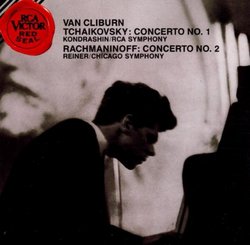 | Sergey Rachmaninov, Pyotr Il'yich Tchaikovsky, Fritz Reiner Tchaikovsky: Concerto No. 1/Rachmaninoff: Concerto No. 2 Genre: Classical
Van Cliburn, Tchaikovsky concerto No. 1 in flat minior ofp. 23 Rachmaninoff: concerto No2 in Minor, Op.18 Fritz Reiner/Chicago Symphony Orchestra ![header=[] body=[This CD is available to be requested as disc only.]](/images/attributes/disc.png?v=15401716) ![header=[] body=[This CD is available to be requested with the disc and back insert.]](/images/attributes/disc_back.png?v=15401716) ![header=[] body=[This CD is available to be requested with the disc and front insert.]](/images/attributes/disc_front.png?v=15401716) ![header=[] body=[This CD is available to be requested with the disc, front and back inserts.]](/images/attributes/disc_front_back.png?v=15401716) |
Larger Image |
CD DetailsSynopsis
Product Description Van Cliburn, Tchaikovsky concerto No. 1 in flat minior ofp. 23 Rachmaninoff: concerto No2 in Minor, Op.18 Fritz Reiner/Chicago Symphony Orchestra Similar CDs
Similarly Requested CDs
|
Member CD ReviewsReviewed on 7/6/2009... This is a great CD for me. I enjoy these great clssical music, and when I heard Van Cliburn play it was great. 1 of 1 member(s) found this review helpful.
CD ReviewsCliburn: Top Tchaikovsky Concerto Recording on Disk Michael A Pahre | Cambridge, MA | 05/23/2000 (5 out of 5 stars) "Van Cliburn's prize winning performance in the Tchaikovsky competition was with the Rachmaninoff 3rd piano concerto and the Tchaikovsky first concerto (the latter is on this disk). Taking Russian music to the heart of Russia for a piano competition was one bold move! Upon his triumphal return to the United States, the Carnegie Hall concert (with conductor Kiril Kondrashin flown in from the USSR just for this event) and this subsequent recording were put together hastily in order to preserve the moment for history. And what a recording it is!I have listened to over thirty recordings of the Tchaikovsky first piano concerto, and two stand out: Gary Graffman (with Szell and the Cleveland Orchestra) and this Cliburn recording. He has all the piano technique for total mastery of this work---rapid and precise octaves, nimble fingerwork (particularly the presto middle section of the 2nd movement), a big sound (the opening allegro non troppo section), and a strong sense of the folk music basis for the main theme of the 3rd movement. Furthermore, only he and Graffman on record nail the notoriously tricky rhythmic pattern beginning the allegro con spirito main section of the 1st movement. He keeps careful balance with the orchestra throughout, and never resorts to excessive use of the pedal to cover up technical difficulties. Moreover, the performance is polished and intensely musical in every passage.If you can tolerate an orchestra that isn't always impressive, then buy this Van Cliburn recording and be totally amazed! Other top recordings of the Tchaikovsky include the Graffman performance (with Szell), an aristocratic reading by Claudio Arrau, an impressive and virtuosic interpretation by Horowitz (with Toscanini and NBC Symphony Orchestra), and a grandly romantic one by Rubinstein (with Leinsdorf leading the Boston Symphony Orchestra).The Rachmaninoff 2nd piano concerto recording is similarly impressive, with Cliburn drawing deep and thundering sounds out of the piano at every turn. This is Rachmaninoff at his most dark and brooding, with passages of joy only occasionally bursting forth. The microphone placement was too distant to get good treble out of the piano, but the recording has held up remarkably well over time. An excellent performance, too, although the Tchaikovsky alone is worth the price of this disk." This CD captures a vital musical and cultural moment Robert L. Berkowitz | Natick, MA United States | 01/13/2003 (5 out of 5 stars) "I wasn't even born when Cliburn took the world by storm, winning the Tchaikovsky competition in the Soviet Union. But the legend still lived on when I was taking piano lessons at the age of nine. While I was growing up, listening to any Cliburn recording conjured up the swell of pride that our nation felt about him, and that extra-musical element added to the joy of his music-making.We often focus on Cliburn's victory in the Soviet Union as a uniquely American victory. A lanky Texan walked into the Soviet Union, our Cold War enemy, and played Russian music to a severely discerning Russian audience, completely bowling them over. Khrushchev had to give permission to the judges to give Cliburn the Gold Medal because it represented such an embarassment to the Soviet Union to have their pianists lose to an American. In truth, it was also a victory for the Russians. To find that their music could be played with such understanding and depth by a young man so culturally and geographically removed from the Russian people proved that Russian music is universal -- it transcends cultural boundaries. That an American could be taught to play Russian music so brilliantly could only mean that Russian music was so great and compelling that it could speak to the soul of any human being regardless of his or her background.In other words, it was a win-win situation for America and Russia, and this recording of the Tchaikovsky concerto becomes the place of meeting where both Russians and Americans can celebrate. Having Kiril Kondrashin, the famed Soviet conductor, lead the orchestra only serves to make that point even clearer.This extra-musical element has always imbued Cliburn's recording with a sense of occasion. But one would be remiss if one thought that this recording was special only because of Cliburn's sweet victory. The discerning Russian audience knew what it heard was great, and this recording taken from a Carnegie Hall concert shortly after the competition makes it clear what they were so excited about.Cliburn is a big-hearted player. He has a generous, open style that is utterly disarming. His playing is full of lyricism, grandeur, majesty and heart. It is particularly revealing to compare Cliburn's recording with another Tchaikovsky recording imbued with a sense of occasion: Horowitz and Toscanini.On April 25, 1943, the great Russian pianist Vladimir Horowitz played a benefit performance of the Tchaikovsky 1st piano concerto at Carnegie Hall with the legendary conductor Arturo Toscanini and the NBC Symphony. Money from the performance went to support the war effort by purchasing war bonds. The musicians brought a special fervor to the performance inspired by their patriotism for their new-found homeland. Here, again, the Tchaikovsky concerto became the medium through which cultural boundaries were transcended. But no playing could be more diametrically opposed to Cliburn's playing than Horowitz's. If Horowitz's performance represented the pinnacle of what Russian's might expect from the Tchaikovsky concerto, then Cliburn brought a whole new perspective to the piece. Where Horowitz is incisive and brilliant, Cliburn is broad, noble and majestic. Where Horowitz can play at lightening-fast speeds, Cliburn chooses to slow the tempo in order to capture the ardour and sweep of the musical line. If the Russians were accustomed to Horowitz or Horowitz-like playing, then Cliburn's performance was a new revelation and marked a turning point in the way the Tchaikovsky concerto would be heard and performed.Cliburn's performance may not have been as boldly different in conception as I argue above (after all, his teacher was a Russian pianist named Rosina Lhevinne), but it has become the standard by which I compare all other performances that have come after him. And the Horowitz recording I mentioned is a standard by which all pre-Cliburn performances get measured. They are so different and deserve to be heard in tandem to experience how a single piece of music can be interpreted in different ways.The recording of Rachmaninoff's 2nd piano concerto comes from a later date (with Fritz Reiner and the Chicago Symphony). This, too, has been my standard for Rach 2. Cliburn brings the same generous lyrical style to this most familiar piano concerto.I highly recommend this disc, especially because of the historical moment it captures, but also because the performances are without peer."
|

 Track Listings (6) - Disc #1
Track Listings (6) - Disc #1